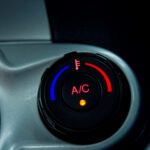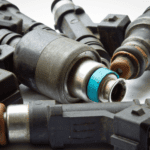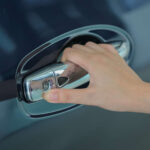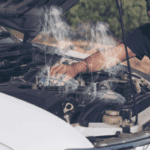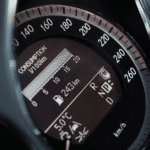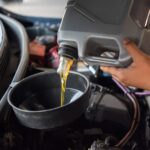Have you ever felt your car jerk or lurch forward when you hit the brakes? It can be a scary and risky situation, leaving you wondering what’s causing it. Whether you’re a mechanic or a car owner looking to learn more about your vehicle, this information can help you identify the issues that may be causing your car to jerk when you brake.
Possible Causes of Your Car Jerking When Braking
Cars do not jerk randomly while braking; there is always a reason. Often, the jerking may not be the only symptom or the one you should notice first; usually, the first symptom is overlooked. Below are all the causes I’ve encountered for a jerking car.
Tire issues
When a tire is worn, it loses grip on the road, as it should. As a result, stopping your car will be more difficult, and you may feel a jerking sensation as the tire struggles to find traction.
Additionally, if your tire is out of balance, it could cause your vehicle to jerk when you apply the brakes, although this is uncommon. Typically, an out-of-balance tire will cause your car or steering wheel to shake when you’re traveling at high speeds.
It’s essential to look out for signs of a worn-out tire, such as uneven tread wear or sidewall bulges. If you notice any of these signs, replace the tire ASAP. An uneven weight distribution on the tire can cause a vibration that moves through the entire car. This can cause your vehicle to shake or lurch when braking, particularly at high speeds.
Worn brake pads
Brake pads are essential to a vehicle’s braking system because they create friction to stop the car. If your car’s brake pads are worn out, they won’t be able to produce enough friction, which may result in a grabbing and releasing sensation when braking; this can also be described as jerking.
Several warning signs indicate worn-out or damaged brake pads. The most common signs are a squealing or grinding noise or the brake pad warning light being illuminated. However, you may also notice less common signs, such as vibrations in the steering wheel or brake pedal. If you notice any of these symptoms, take your car to a mechanic to inspect the brakes.
If you need to replace your brake pads, use a high-quality set appropriate for your vehicle’s make and model. Cheap, low-quality brake pads may perform poorly and cause additional problems in the long run. You can get guidance on choosing the appropriate brake pads for your vehicle from trusted mechanics or auto parts retailers.
Anti-lock braking system (A.B.S.)
Your car’s anti-lock braking system (ABS) is designed to prevent your wheels from locking up when you apply the brakes suddenly. This mechanism is essential in preventing your car from skidding or losing control while braking. However, when the ABS is activated, you may feel a slight jerking sensation or vibration during the braking process. This is normal and indicates that the ABS is functioning correctly. The ABS quickly pumps the brakes to maintain traction and prevent the wheels from locking up. The ABS won’t be kicking in daily or every day, so it can be a surprise when it works.
On the other hand, an ABS fault can mean that the ABS is working prematurely or activating all the time. This can be unsettling when braking as you will feel the car jerking. When the ABS is faulty, the warning light will often illuminate at the same time. Several components make up an anti-lock braking system, but the parts that can go faulty, causing this issue, are the ABS pump and the ABS sensor.
Sticking brake caliper
The brake calipers are responsible for holding the brake pads and applying force to clamp onto the rotors when braking, which stops the car. If the calipers are faulty, they won’t put enough pressure on the brake rotors, causing the car to jerk or lurch.
The brake caliper’s biggest failure mode is the piston inside sticking, keeping the brakes partially on. This causes the brake system to overheat and the brake rotors to warp, and you will feel this as a jerking sensation when braking. If you find a faulty brake caliper, you often need to replace the pads, rotors, and caliper at the same time.
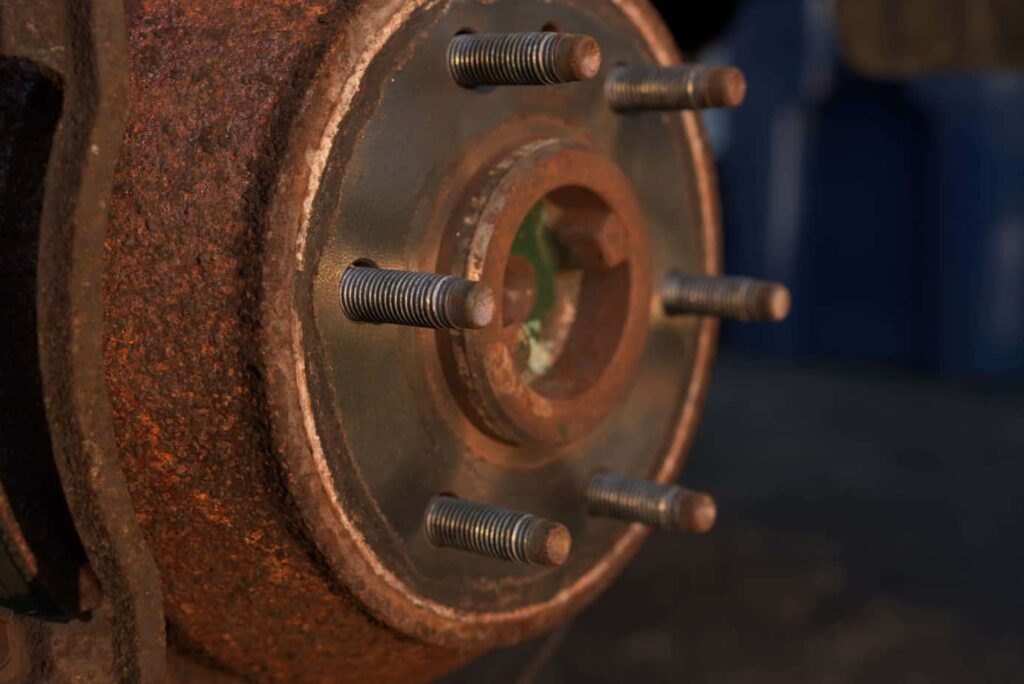
Warped brake rotors
When you Apply the brakes, the pads press against the rotors and slow the car. Brake rotors cause shaking or jerking, which means the rotor is warped, usually caused by overheating. The most common cause for the brakes to warp is a sticking brake caliper, as already covered earlier. There are other causes, such as a collapsed brake hose, the pads stuck in the caliper carrier, and broken pad retaining clips forcing the pads onto the rotor.
Worn suspension bushes
Suspension bushes ensure the vehicle’s suspension system operates smoothly, effectively, and safely. They act as a cushion between the different components of the suspension system, such as the control arms and the chassis. The primary function of these bushes is to absorb and isolate vibrations, noise, and harshness that occur when driving over uneven terrains or bumps.
However, these bushes can wear out over time due to constant use, exposure to harsh weather conditions, and other factors. When this happens, the vehicle’s steering becomes loose, and the wheels tend to move in different directions, leading to a lack of control and stability on the road. This can also manifest as a jerking sensation when pressing the brake pedal, making driving unsafe.
Final Words
There are several reasons why your car might jerk when you step on the brakes. It could result from the above possibilities, such as tire, brake, or even suspension problems. If you experience a jerking sensation when you step on the brakes, address the issue immediately to avoid potential safety risks.
